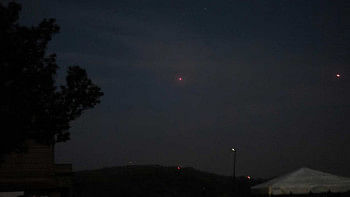Witness testifies in camera for first time

For the first time at the international crimes tribunals, a witness testified and was cross-examined behind closed doors yesterday.
In the case against Jamaat leader Abdul Quader Mollah at the three-member International Crimes Tribunal-2, the traumatised female witness deposed in camera in front of three prosecutors and defence lawyers each, court officials and the accused.
Her cross-examination will resume today.
Mohammad Ali, the conducting prosecutor of the case, yesterday told reporters that a female prosecution witnesses had given testimony before the tribunal and defence counsels had cross-examined her in camera.
“As the case proceedings were held in camera, we cannot disclose what happened or what was said in the courtroom,” said Mohammad Ali.
“Since she is an old woman who maintains purdah and since five of her family members were killed and one went missing, we had asked for her testimony to be recorded in camera, which the court agreed on,” he said.
The tribunal, headed by Justice ATM Fazle Kabir with members Justice Obaidul Hassan and Judge Md Shahinur Islam, had on July 12 decided to allow two female witnesses, members of victims' families, to give their testimonies against the Jamaat assistant secretary general behind closed doors to protect their identity and privacy.
The tribunal usually conducts proceedings in an open court where journalists and other observers can be present, but in camera none except the judges, selected lawyers, the accused and court officials are present.
On May 28, the tribunal framed six charges against Quader Mollah for his alleged involvement in murders and mass killings during the Liberation War in 1971. Two prosecution witnesses have so far given their testimonies before the tribunal.
GHULAM AZAM'S BAIL
Meanwhile, defence counsel for war crimes accused and former Jamaat chief Ghulam Azam sought a 30-day bail at International Crimes Tribunal-1 so that the accused could fast with his family throughout the holy month of Ramadan.
Defence counsel Abdur Razzaq said Ghulam Azam had been performing i'tikaf (an Islamic practice consisting of a period of retreat in a mosque for a certain number of days, especially during Ramadan) since 1978. He had been offering Taravi prayers during Ramadan, Razzaq said, adding that his client wanted to do the same this year and that was why he needed the bail.
Opposing the bail, Prosecutor Zead Al Malum said many pious people could not fast during the Liberation War due to the atrocities and the bail petition had been wrapped up with religion. “There is no scope for bail,” he said.
The tribunal fixed today for delivering an order on the bail petition.
Ghulam Azam has been indicted on five charges of crimes against humanity.
Earlier, the tribunal recorded the cross-examination of the investigation officer of a case filed against Jamaat-e-Islami leader Delwar Hossain Sayedee in connection with his involvement in crimes against humanity during the Liberation War.
Sayedee is facing charges on 20 specific counts of crimes against humanity during the Liberation War.

 For all latest news, follow The Daily Star's Google News channel.
For all latest news, follow The Daily Star's Google News channel. 



Comments